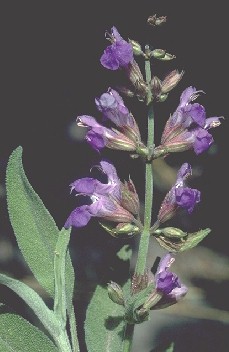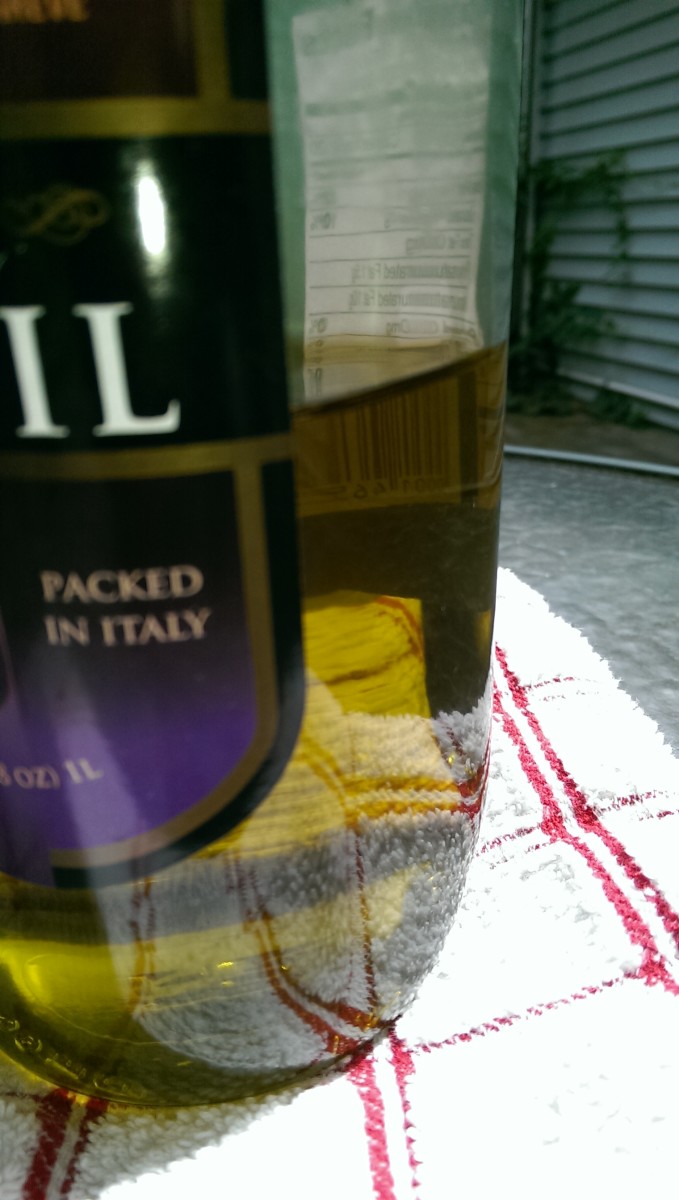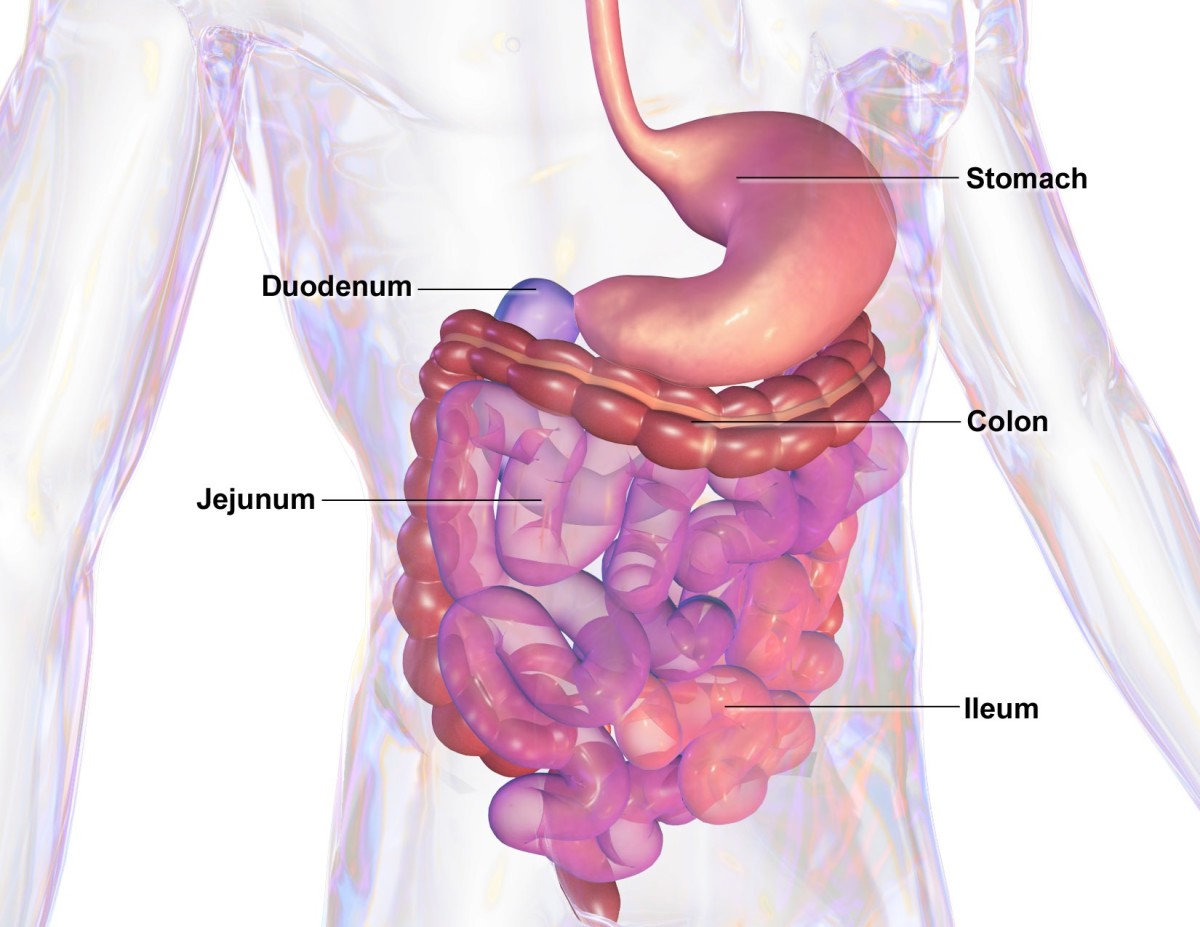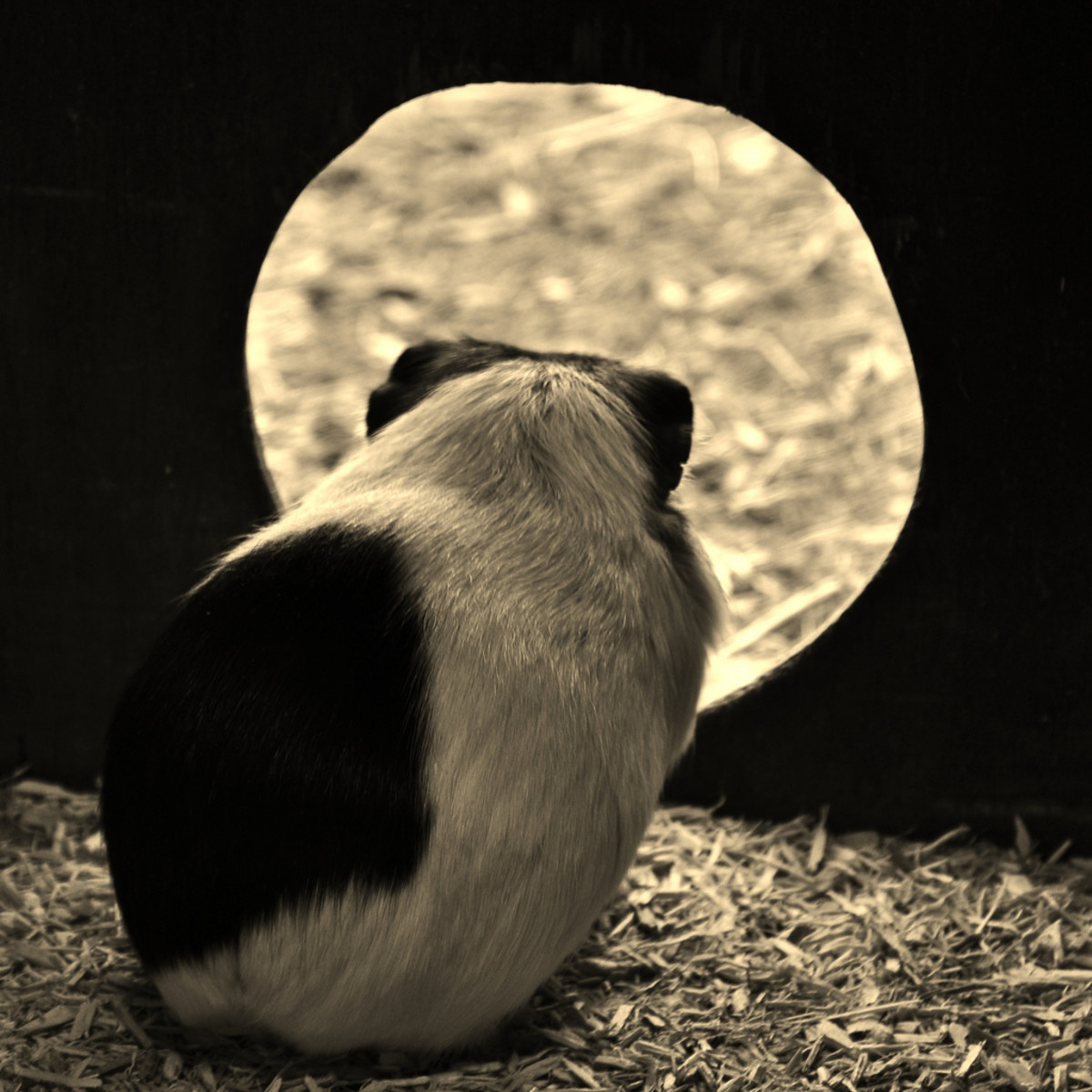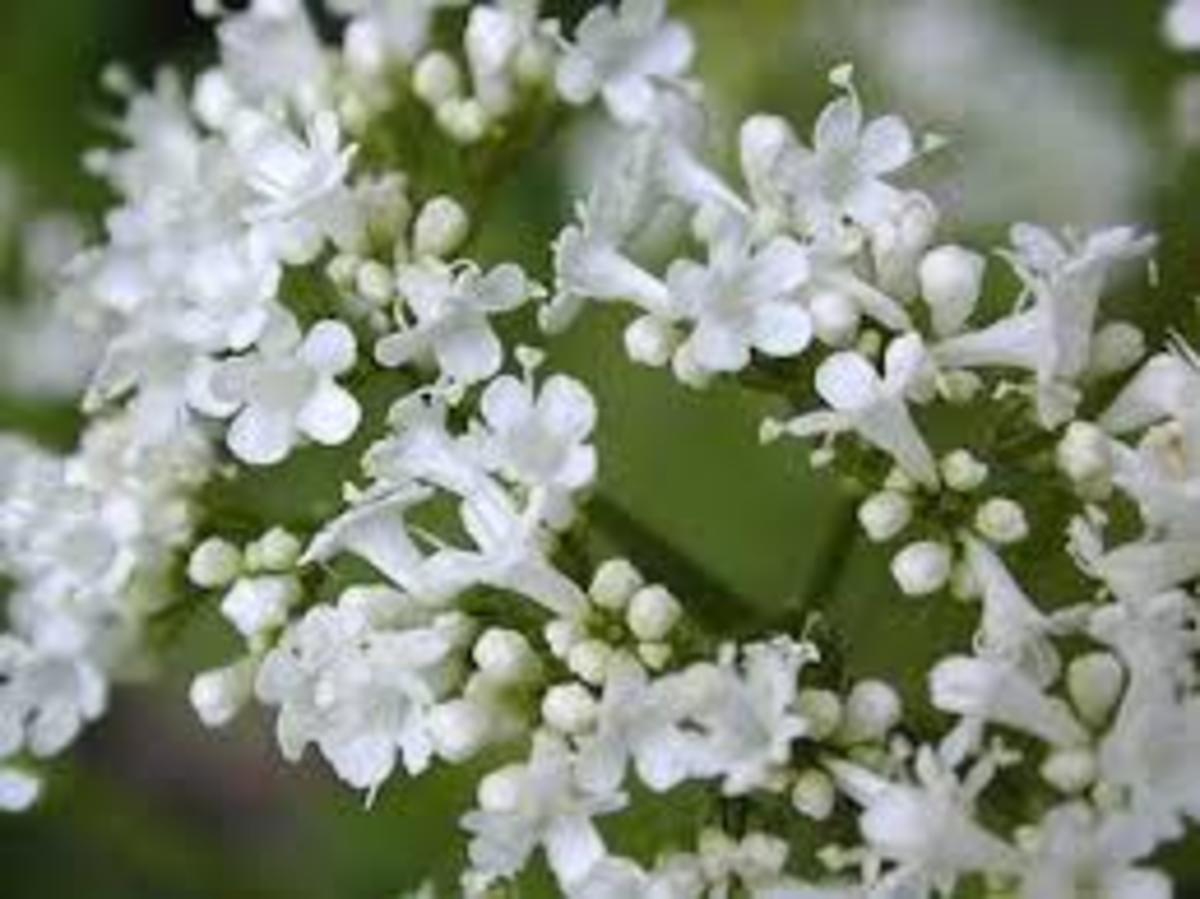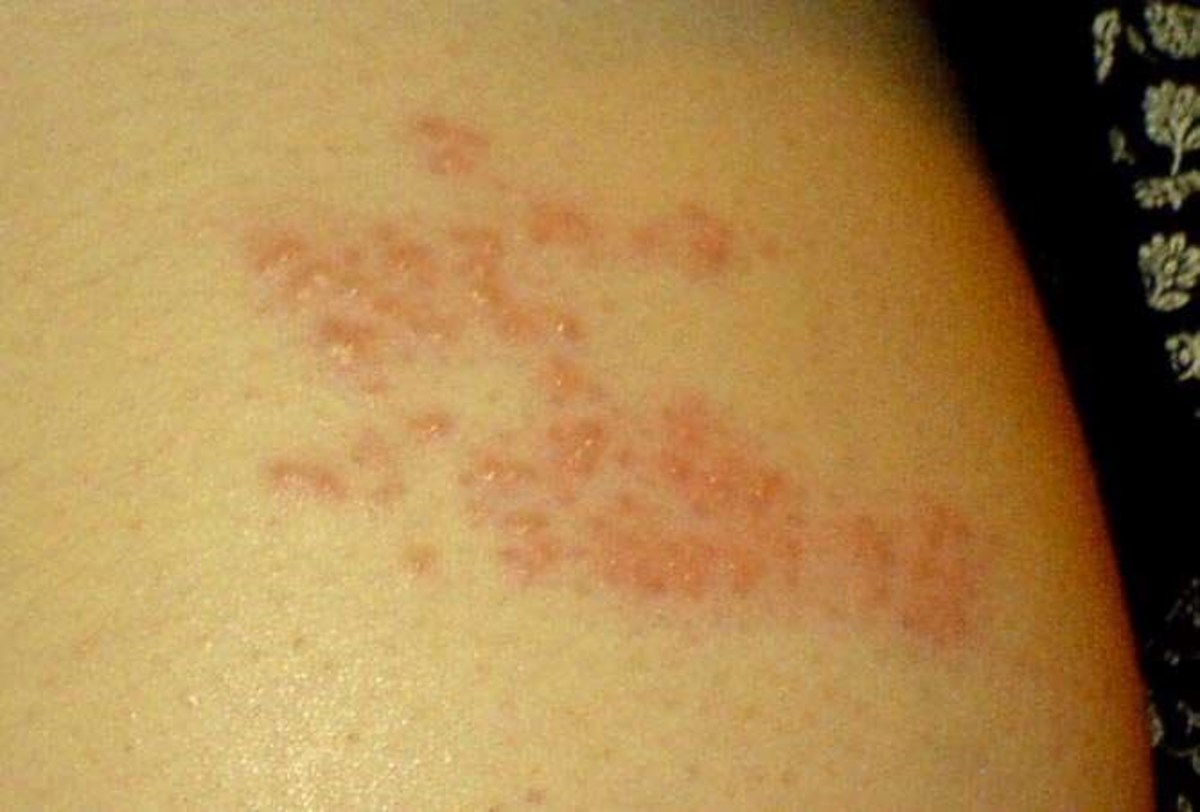- HubPages»
- Health»
- Alternative & Natural Medicine»
- Herbal Remedies
"ALL IS WELL" SAGE - against gingivitis
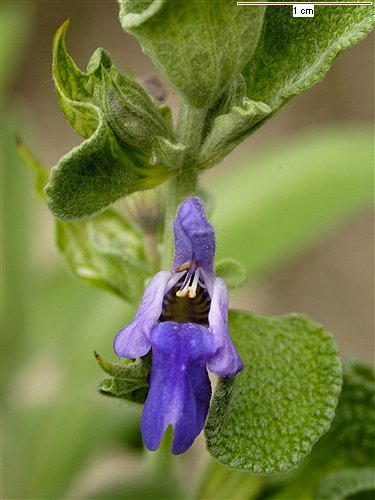
I understand how gingivitis can be unpleasant problem (my personal experience). But, very often natural medicine can be even more helpful in curing it. Natural medicine is older then allopathic medicine, so sometimes even more effective.
When I had that problem, I used to make very, very, strong tea of dried sage leaves, and use to gargle it several times per day. My gums started to improve reasonable quickly, just in few short days. And I deeply believed this would be helpful. At the same time I visualised my gums HEALTHY!
Use 3-4 teaspoons of dried sage leaves and add it in boiled water (for one cup of tea). Cook the tea 10 minutes. Let it get cold, enough for pleasant gargling. Gargle it whenever you go into the bathroom... Sage has strong antiseptic power, so it would be recommendable you also drink the tea of sage leaves(1-2 teaspoons for mug of tea, put in the boiled water, no need to boil it longer then 1-2 minutes, leave for few minutes and drink the tea, 2-3 times per day)
It is also good to use toothpaste with herbs and MINERAL SALTS, also take vitamin/mineral supplements, especially vitamin C.
Everything else what my hub-colleagues suggested, I would recommend too. Wish you the quick improvement of your gums condition!
WITH THE HELP OF SAGE - ALL IS WELL
Sage (Salvia officinalis) also known as garden meadow, has a long tradition of culinary and medicinal use. Sage was once used to help preserve meat and over the past 2,000 years or so has been recommended by herbalists to treat just about every known condition, from snakebite to mental illness. In fact, in medieval times the French called the herb toute bonne, which means, "all is well". Modern research has shown that sage can help reduce excessive perspiration, digestive problems, sore throats, premenstrual cramps, and high blood sugar.
Sage was once recommended by herbalists has to treat fever, a usage that probably arose from sage's ability to reduce perspiration. Modern research has demonstrated that sage reduces perspiration by as much as 50 percent, .
Sage is also an active ingredient in some natural mouthwashes because its tannins help kill the bacteria that cause gingivitis. Sage has traditionally been used to treat canker sores, bleeding gums, sore throat, tonsillitis, and laryngitis. Recent laboratory studies support the use of sage to guard against infection-it has demonstrated an ability to fight against several infection-causing bacteria. Like two other culinary herbs, rosemary and thyme, sage helps guard against depletion of the brain's concentration of acetylcholine, a neurotransmitter that is crucial to proper brain function. A combination of ginkgo biloba, sage, and rosemary may help prevent or slow the development of Alzheimer's.
Sage has a long history of use as a treatment for gastrointestinal disorders. It has been shown to help relax muscle spasms in the digestive tract, One German study has found that drinking a sage infusion reduced blood sugar levels in people with diabetes, but only when they took the infusion on an empty stomach.
Sage is available commercially in liquid leaf extract form; the usual dose is 1 teaspoon three times per day. It's easy to grow and dry your own sage. Better yet, this herb is a perennial, and will come back year after year, although it should be replaced every three to four years or it becomes woody and unproductive. To harvest your own sage leaves, cut the plant down, leaving 4 inches above the ground, then strip and dry the leaves for future medicinal or culinary use.
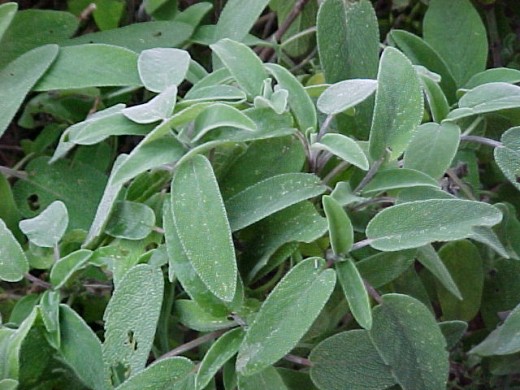
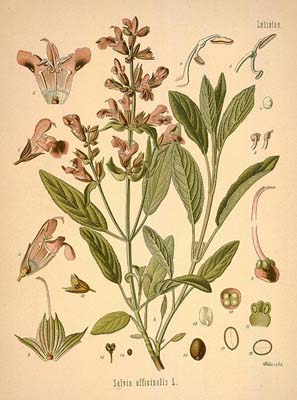
SAGE IS anti-bacterial, anti-fungal, anti-hydrotic, anti-inflammatory, anti-microbial, anti-septic, anti-spasmodic, anti-viral, aromatic, astringent, carminative, emmenagogue, oestrogenic, relaxant, spasmolytic, vermifuge.
Indicated for: Aiding digestion, Alzheimer's disease, asthma, bacterial & fungal infections, biliousness, bites, calming and stimulating the nervous system, candida, colds, coughs, dental abscesses, diarrhoea (infantile), dysmenorrhoea, encouraging healing, excessive menstrual bleeding, flatulent dyspepsia, gastrointestinal upset, gingivitis, glossitis, headache (nervous), hot flashes (menopausal sweats) hyperhidrosis, improving memory, indigestion, infected gums, intestinal infection, insect bites, irregular and scanty periods, joint paint, kidney problems, lack of appetite, lethargy, liver complaints, lungs or stomach haemorrhaging, measles, mouth ulcers, night sweats, oral inflammation, palsy, perspiration (excessive), pharyngitis, phthisis, quinsy, reducing lactation, rheumatism, rhinitis, skin, throat, mouth and gum infections, soothing the digestive tract, stimulating upper digestive secretions, intestinal mobility, bile flow, and pancreatic function, stings, stomatitis, strengthening the nervous system, throat infections, typhoid fever, uvulitis, vaginal discharge. Taken internally or as a gargle or mouthwash; galactorrhoea, hyperhydrosis, inflammations of the mouth, tongue or throat.
Sage has been used effectively for throat infections, dental abscesses, infected gums and mouth ulcers. The phenolic acids in Sage are particularly potent against Staphylococcus aureus. In vitro, sage oil has been shown to be effective against both Escherichia coli and Salmonella species, and against filamentous fungi and yeasts such as Candida albicans.
